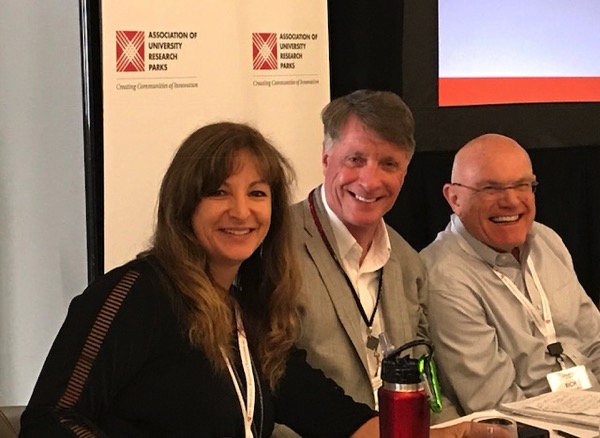
Rich Bendis, Founding President and Chief Executive Officer, BioHealth Innovation, Brian Darmody, Associate Vice President for Corporate and Foundation Relations and former Association of University Research Parks (AURP) President, and Julie Lenzer, AVP of Innovation and Economic Development at UMD engage in a discussion of the transformed university tech transfer office at the AURP BioParks 2017 conference, held in conjunction with BIO 2017 at San Diego, California.
The session was moderated by David Winwood, Associate Executive Director and Chief Business Development Officer at Pennington Biomedical Research Center at LSU, and included an earlier panel on the transformation of medical research campuses into hubs of innovation and scientific breakthroughs.
This event is a prelude to BIO 2017 in San Diego, which generated a record breaking delegation from the state of Maryland, including numerous private sector biotechnology companies based in Maryland, Ben Wu, from Maryland Department of Commerce, Tamie Howie, from the Maryland Technology Council, and biotechnology economic development representatives from across the state.
At BIO 2017 the delegation will discuss partnering opportunities with the FDA in White Oak, state financing for biotechnology companies, and presentations from Maryland's leading biotechnology companies at the Maryland Pavilion.
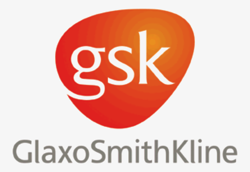
When Ripley Ballou — Rip to his friends — started to feel sick at a party in 1987, he thought it was because of his friend's home-brewed beer.
Ballou was taking a break from his work on developing a malaria vaccine at the Walter Reed Army Institute of Research in Silver Spring, Maryland, which he was doing in collaboration with the pharmaceutical giant GlaxoSmithKline (GSK). Back then, researchers could be a principal investigator as well as volunteer in their own projects.
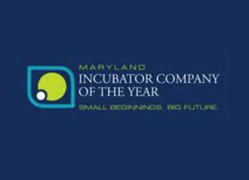
The American Visionary Art Museum provided the backdrop Thursday night for this year’s edition the Maryland Incubator Company of the Year Awards.
The awards seek to spotlight startups making moves around the state, as well as the incubators that provide support to help them grow.

emocha mobile health is turning its technology toward the nation’s growing opioid crisis.
Providing a way for medical staff to remotely observe patients taking required medication can help people battling addiction stay in treatment, said CEO Sebastian Seiguer.

OpGen announced today that it has signed a supply agreement with Thermo Fisher Scientific to combine its Acuitas Rapid Test for Pathogen ID with Thermo Fisher's real-time PCR solutions.

The University of Maryland, Baltimore (UMB) and the University of Maryland, College Park have granted Cellth Systems exclusive licensing rights for the commercial development of cell-tethering technology that allows real-time analysis of circulating tumor cells (CTCs), which has important applications in cancer treatment. In addition, Cellth announced today that TEDCO, an independent organization assisting and funding Maryland’s startup community, has awarded the company $150,000 through its Maryland Innovation Initiative (MII) program.

Silver Spring regenerative medicine company Aziyo Biologics Inc. raised $12 million in a recent funding round, a Securities and Exchange Commission filing shows.

The National Institutes of Health has awarded a University System of Maryland institute a $6 million grant to develop a vaccine for the hepatitis C virus.
The Institute for Bioscience and Biotechnology Research will conduct the grant-funded research over a five-year period. The institute is a joint research enterprise between the University of Maryland, College Park, the University of Maryland, Baltimore and the National Institute of Standards and Technology.

Personal Genome Diagnostics (PGDx) received a new contract from the U.S. Department of Veterans Affairs to provide a test for cancer that does not require tissue samples.
The Canton-based company makes a liquid biopsy, which tests for cancer by evaluating 64 genes that are associated with cancer.

Sonavex, a Baltimore-based medical device company, has announced a raise of $3M in financing including the first close of its Series A round led by Grey Sky Partners. Recently named Maryland’s 2016 Incubator Company of the Year, Sonavex is focused on improving surgical patient outcomes with point-of-care imaging technologies. Other organizations participating in this financing include CRCM Venture Capital, TEDCO, and the Abell Foundation. Award of a $750k Phase II SBIR grant from the National Science Foundation is also included in the financing. With this influx of capital, Sonavex will be advancing the commercialization of EchoSure, a Doppler ultrasound system, and developing additional ultrasound solutions currently in the company’s pipeline. The press release also announces the addition of Bill Niland, CEO of Harpoon Medical, and Bob Hallenbeck, former executive at Becton Dickinson, to Sonavex’s Board of Directors.

Technology talent often found in California's tech mecca Silicon Valley is starting to spread to other parts of the U.S., thanks to the rising cost of living in the Bay Area and government tax breaks for companies that move to another state. And because of that, Baltimore is starting to see growth in the industry.

Typically when someone gets #Cancer, it is not the initial tumor that kills them. At some point, the tumor spreads to other parts of the body, such as the brain, the liver, or other parts to the point where it becomes untreatable. What if a therapy could be developed that could slow or even stop this process? A post-doctorate fellow at #Johns Hopkins may well have discovered such a therapy, according to the Baltimore Sun.

The University of Maryland and Georgetown University are two of the world’s leading academic institutions for the number of utility patents they were awarded last year.

Researchers in the University of Maryland (UMD) Fischell Department of Bioengineering (BIOE) Jewell Laboratory are using quantum dots - tiny semiconductor particles commonly used in nanotechnology - to decipher the features needed to design specific and effective therapies for multiple sclerosis (MS) and other autoimmune diseases. Their findings were published this week as the cover story of Advanced Functional Materials.
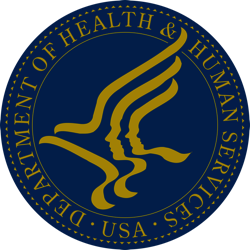
The Omnibus solicitation of the National Institutes of Health (NIH), Centers for Disease Control and Prevention (CDC), and Food and Drug Administration (FDA) have been released with submission dates of September 5, 2017 and January 5, 2018. The solicitation is for both SBIR and STTR applications for NIH, and SBIR proposals for CDC and the FDA.

To fill a pair of life-sciences buildings on the East Side it built during the past decade, Alexandria Real Estate Equities recruited big pharmaceutical companies, like Eli Lilly and Roche, as anchor tenants. Now the firm is focusing on startups it hopes will spur the next wave of growth at its Alexandria Center for Life Science campus.
The firm today announced lease deals for roughly half its year-old, 15,000-square-foot LaunchLabs incubator. Most of the 13 tenants emerged from local academic and research institutions including New York University, Columbia, and the New York Genome Center. The products being explored include tissue implants from 3-D printers, drugs to heal scar tissue and genetically engineered organisms augmented with synthetic chromosomes.

The contractor must have experience and expertise coordinating entrepreneurial training programs for biomedical innovators over a minimum of three (3) years.
The contractor must have an understanding of concepts in medical device innovation and design, as well as commercialization processes and strategies.

A few years ago, multinational pharma companies seeking growth and respite from market uncertainty in Europe and the United States found a haven in emerging markets. Their rapid economic growth triggered an expansion in healthcare coverage and the emergence of a new cohort of consumers able to afford larger out-of-pocket spending on drugs. But early euphoria was soon replaced by a more somber outlook.

Big data analytics are entirely transforming business paradigms. Automated databases are enabling businesses to perform mundane tasks more efficiently. And, the commercial sector isn’t the only area to benefit from data analytics. Its impact is widespread and is being seen across many different sectors, including healthcare.
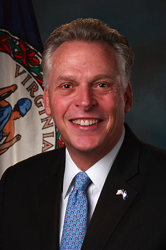
Governor Terry McAuliffe today announced that Granules India Ltd., a vertically integrated pharmaceutical company, will invest $35 million into its wholly owned subsidiary, Granules Pharmaceuticals Inc., to expand its pharmaceutical R&D and manufacturing capabilities in Fairfax County. Virginia successfully competed against New Jersey for the project, which will create 102 new jobs. In 2014, the company invested $15 million to establish the wholly-owned subsidiary operation, creating 75 jobs.

The “birthplace of biotechnology” is to receive $10 million for a pioneering precision medicine programme.
It was announced this week that the California Initiative to Advance Precision Medicine (CIAPM) has been awarded the money from the local government’s budget, a decision welcomed by the California Life Sciences Association (CLSA).

“Processors are overdesigned for most applications,” says University of Illinois electrical and computer engineering professor Rakesh Kumar. It’s a well-known and necessary truth: In order to have programmability and flexibility, there’s simply going to be more stuff on a processor than any one application will use. That’s especially true of the type of ultralow power microcontrollers that drive the newest embedded computing platforms such as wearables and Internet of Things sensors. These are often running one fairly simple application and nothing else (not even an operating system), meaning that a large fraction of the circuits on a chip never, ever see a single bit of data.

A provocative study published earlier this month in the journal Science and Public Policy contends that Europe lacks the cutting-edge science long seen in the U.S., and increasingly published in Asia: “Europe lags far behind the USA in the production of important, highly cited research,” co-authors Alonso Rodríguez-Navarro, Ph.D., of Universidad Politécnica de Madrid, and Francis Narin, Ph.D., founder of CHI Research (now The Patent Board).
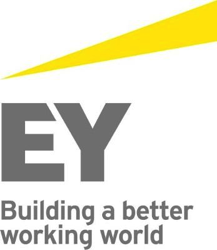
The biotech industry remains poised for growth, EY said in its annual industry report released today, despite continuing pressure from payers to contain drug prices and an investor pullback from capital markets that helped deflate profits and slow down revenue growth for public companies last year.
"Beyond Borders: Staying the Course" observed that while biotechs will continue to pursue the prices they seek for new drugs by citing their value—either in patient outcomes or lower costs—so too will payers seek to contain those prices.
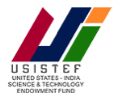
Commercializing Technologies for Societal Impact
The governments of the United States of America (through the Department of State) and India (through the Department of Science & Technology) have established the United States - India Science & Technology Endowment Fund (USISTEF) for the promotion of joint activities that would lead to innovation and technopreneurship through the application of science and technology. The Endowment Fund activities are implemented and administered through the bi-national Indo-US Science and Technology Forum (IUSSTF).
The fund aims to select and financially support promising joint U.S.-India entrepreneurial initiatives that address the theme of “Commercializing Technologies for Societal Impact” through a competitive grant program.

Americans are identifying the need for more healthcare innovation, according to a recent survey.
A Klick Health consumer survey, conducted by Maru/Matchbox, found that only 17% of people rank health-related sectors as most innovative, but 40% think they should be.
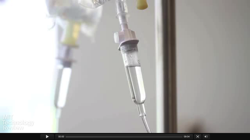
A transformative cancer therapy based on modified immune cells has lured doctors, companies, and patients alike, but many are hitting a frustrating roadblock: generating enough of these chimeric antigen receptor (CAR)-T cells to meet surging demand. The situation is fluid, with shortages cropping up in some places and easing in others. Doctors, meanwhile, are grappling with how best to distribute the experimental therapy among very sick patients in clinical trials.
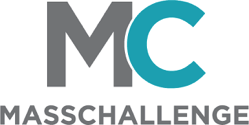
MassChallenge marked the end of its first digital health cohort PULSE@MassChallenge with assurances from Massachusetts Gov. Charlie Baker that the Commonwealth would back a second class of digital health businesses and provide funding for health technology innovation center TechSpring. Health technology businesses with eye tracking technology for concussion detection, virtual reality to reduce social isolation for nursing home residents and a telehealth alternative to ambulance radios were among the 31 participants in the inaugural class to be singled out at the Boston event.
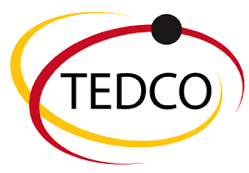
TEDCO is known for providing seed funding for early stage companies.
“We want to help the incubation industry raise their bar, too, and keep pace with acceleration and innovation in Maryland,” said Neil Davis, Director of Entrepreneurial Development at the quasi-public agency that backs early stage companies.